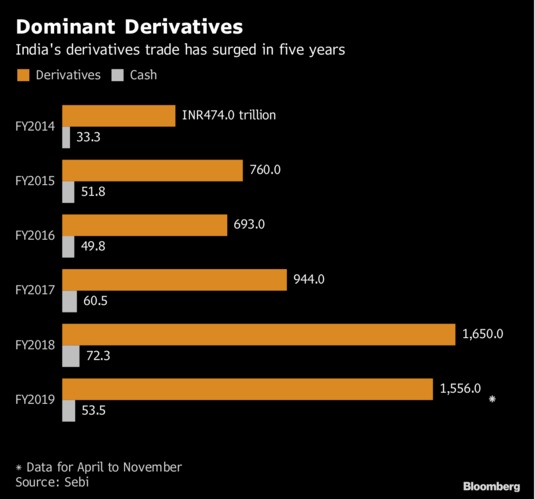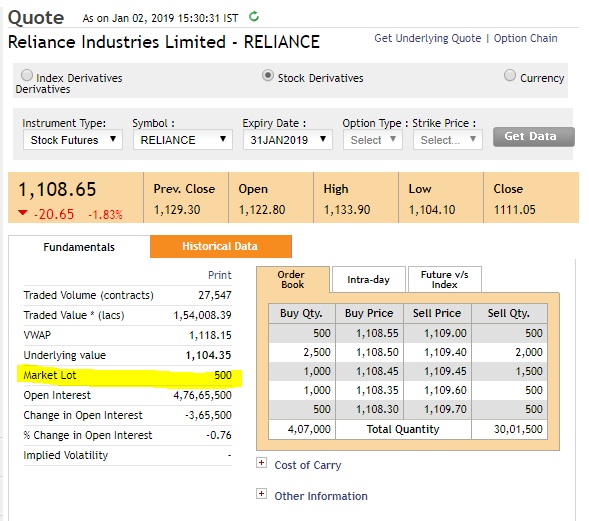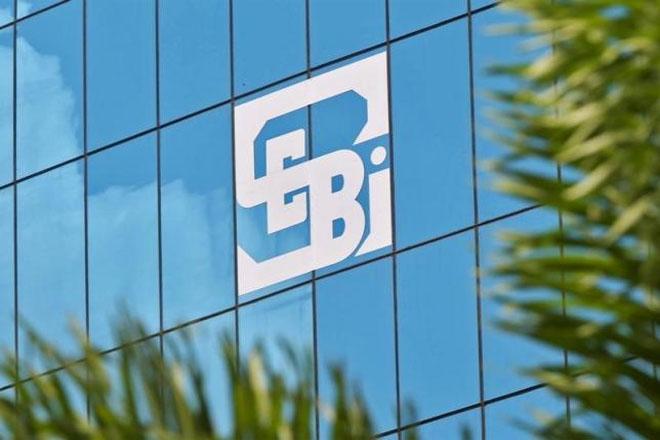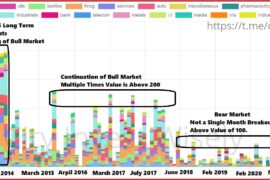Currently, there is a cash settlement in the Futures & Options (F&O) segment. In cash settlement of F&O, the seller of the financial instrument does not deliver the actual stock upon expiration or exercise but instead pockets out the losses or pockets in the gains (depends whether he is on the losing position of gaining position). SEBI Notice
This creates too much speculation and volatility in the market, especially around the expiration of contracts i.e. on the last Thursday of every month.
Just Because of Cash Settlement, Derivative volumes are at the highest level in India, if we compare with some other developing markets.
SEBI plans to introduce physical settlement of derivatives from April 1, 2019, which means traders will have to compulsorily take delivery of shares on the expiry day against their derivative positions.
SEBI’s move on physical settlement of derivatives is aimed to curb the excessive speculation on individual stocks that create huge volatility. Remember, a large share of F&O volumes comes from index contracts viz. Nifty & Bank Nifty, as these are indices, it will continue to remain under cash settlement.
Pros of the SEBI Move
- Volumes might reduce on the day of expiry leading to lower volatility
- F&O rollovers, which happen near to expiry, might witness rollover a week prior to expiry to avoid lack of liquidity.
- Volumes will grow on the indices during the expiry week (as indices still remain under cash settlement): Nifty and Bank Nifty will continue to be Cash settle and trader will try to create more position on indices future and there will be 20-30% rise in the volume of Indices Future.
- Will help investors by reducing the volatility as derivatives would be utilized in the true spirit i.e. for hedging purpose only and not for speculation.
Cons of the SEBI Move
- In the Short-term, the impact will be negative as liquidity and the trading volumes might decline.
- Reduction in liquidity impacts price discovery and broadens spreads between bids and asks. If Traders Rollover Their position a week prior to expiry then it will Decrease Volume and Increase Spread and that can impact on the cost of carrying a future. ( Spread= Difference in between Bid price and Ask price).
- Generally, 90% of Traders use to Rollover their position on the day of expiry, Now due to Physical Delivery, they will do that before expiry.
Will all the stocks move into physical settlement from April 1, 2019?
Approximately 200 stocks are traded in the F&O segment, the physical settlement mechanism already exists in the 50 stocks.
However, SEBI now wants to apply the same mechanism to all stocks, which are cash-settled under the existing framework. The same will be done in a phased manner of 50 stocks each month, and the entire process is expected to conclude by October 2019.
How does Cash Settlement work?
If Suresh buys 1 lot of futures (500 is the lot size) of reliance on Jan 2, 2019
The total trade value = 500* ₹ 1108.65 = ₹ 5,54,325
He has to maintain a margin of only ₹ (77500/-)which is just 14% of the total Trade value.
If on the day of Expiry i.e. Jan 31, 2018 (last Thursday of the month) reliance share price is trading at 1175,
Then the gain is: (₹ 1175- ₹ 1108.65) *500 (this is the lot size remember!) = ₹ 33,175
So at the end of the transaction, Suresh just sells at 1175 and gets ₹ 33,175 and this is a simple Cash settlement.
How does Physical Settlement work?
If you are a buyer in the F&O segment: On the day of expiry If you are holding 1 Future lot of Reliance then make sure you square off before the closing of the market, otherwise you have to take compulsory Delivery of 500 stocks, If you have no money then High penalty you have to pay. So it’s a high risk for retail traders.
Either Square off your trade or Upload fund to your account. ( this only apply to expiry day)
Now, in this case, Suresh has to have an amount of ₹5,54,325 by Jan 31, 2019, if he plans to retain it till expiry, as it will now be physically settled, and he will get the stocks in his Demat account, which he may then liquidate or keep as per his choice.
If you are a seller in the F&O segment: If you are holding Short Position of Reliance 1 lot future, Then make sure you square off before the closing of expiry day, otherwise you have to give Delivery of 500 Reliance shares, If you have no Share in Your Demat Account, then ready for the penalty.
If you Have ITM and ATM Options then it will settle as same as Physical Settlement of Future ( In respect of your buying/selling), If holding OTM Options then it will expire worthlessly.
For retailers, it’s a Big head-ache Because this Step will decrease Volume in the market and Increase the cost of carrying asset and moreover if you struck in any illiquid Options then Be ready for Heavy penalty.



